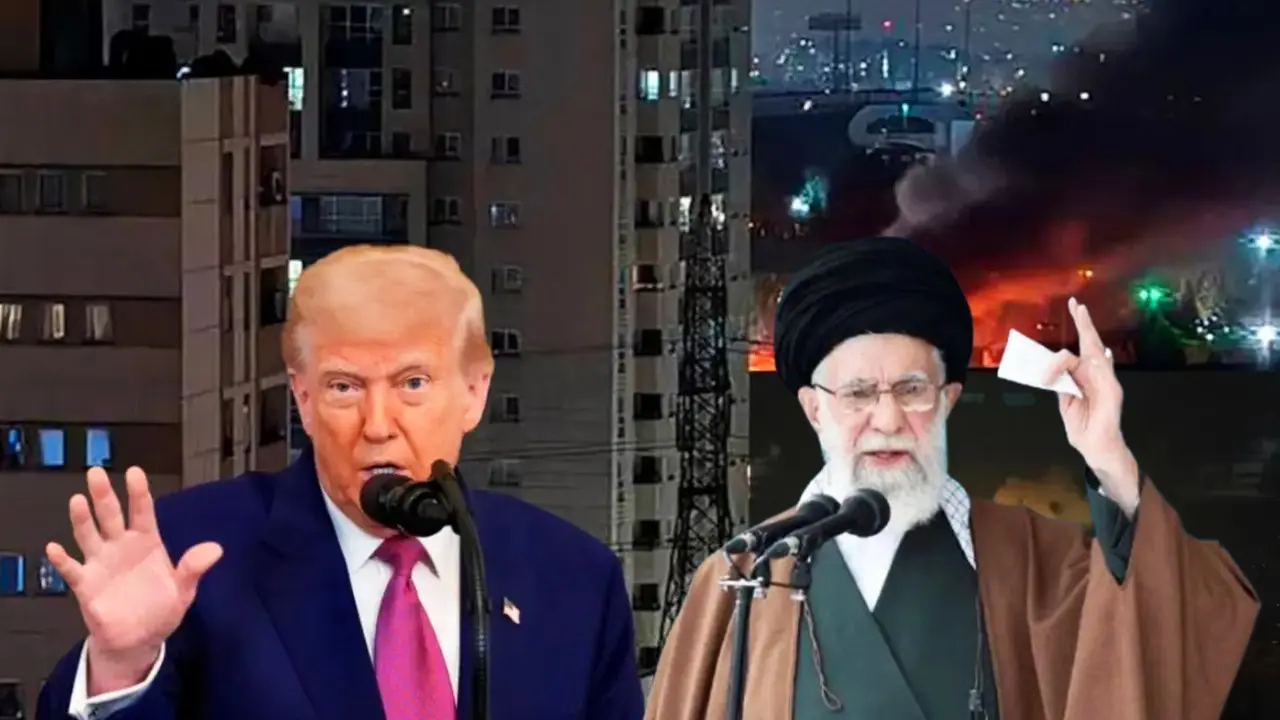Updated 22 June 2025 at 14:11 IST
Israel-Iran War: Is This Trump’s Biggest Foreign Policy Gamble? Here Is You Need To Know
Trump’s strike on Iran’s nuclear sites marks his biggest foreign gamble yet, risking war, retaliation, and global fallout.
- Republic Business
- 3 min read

In a sudden and potentially globalizing military escalation, U.S. President Donald Trump has ordered targeted strikes against Iran's nuclear programs, going on the offensive alongside Israel against Tehran. The action is the most brazen foreign policy move of Trump's presidency—one likely to pull America into a longer-term Middle East war.
Declaring the mission late on Saturday night in the White House, Trump described it as a "great success," with the deployment of bunker-buster bombs against Iran's heavily fortified Fordow nuclear facility. However, experts suggest that the move has the potential to boomerang, unleashing asymmetric retaliation by Iran, rekindling anti-American militancy, and speeding up the development of nuclear weapons in Tehran.
While the prior Biden administration had tiptoed diplomatically on Iran, with Trump's second-term stance has come a dramatic change. The president authorized the mission only after getting assurances of a "high probability of success," a senior White House official stated. The decision came after over a week of Israeli attacks, effectively weakening Iranian defenses and setting the stage for Washington's entry.
Tehran is still belligerent, however. Iran's Atomic Energy Organization promised to press on with its nuclear program and scorned U.S. attacks as acts of aggression. The Iranian Foreign Ministry threatened "resistance with all its might," and a state broadcaster proclaimed all American troops in the area "legitimate targets."
Advertisement
Experts caution that consequences could be dire. Iran might attack U.S. bases, hit soft targets overseas, or shut the Strait of Hormuz—interfering with worldwide oil supplies. "This is not going to end quickly," former U.S. negotiator Aaron David Miller said. "Iran has many asymmetric options."
The bombing also risks destabilizing what is left of diplomatic channels. The Arms Control Association warned that war would only increase the resolve of Iran to seek nuclear deterrence.
Advertisement
Opponents worry about mission creep. "Trump could find himself being drawn into a regime change operation, even if that wasn't the original intention," said Johns Hopkins University's Laura Blumenfeld. The risk of escalating conflict has outraged Democrats and alarmed Trump's own MAGA-aligned, anti-war base.
This is Trump's first significant foreign crisis in his second term—six months in—and threatens to overshadow his campaign promises to cut America's military involvement in Ukraine and Gaza.
"Trump is back in the war business," International Crisis Group's Richard Gowan said. "The notion that he was a peacemaker always seemed more like a slogan than a strategy."
As Washington waits for the next move from Iran, one thing is certain: the days of strategic ambiguity are gone. Trump has gambled—and the world is now waiting to see what happens next.
With Reuters inputs
Also Read: Will US Attack On Iran Shockwaves Derail Nifty 50 Bull Run?
Published By : Rajat Mishra
Published On: 22 June 2025 at 14:11 IST
